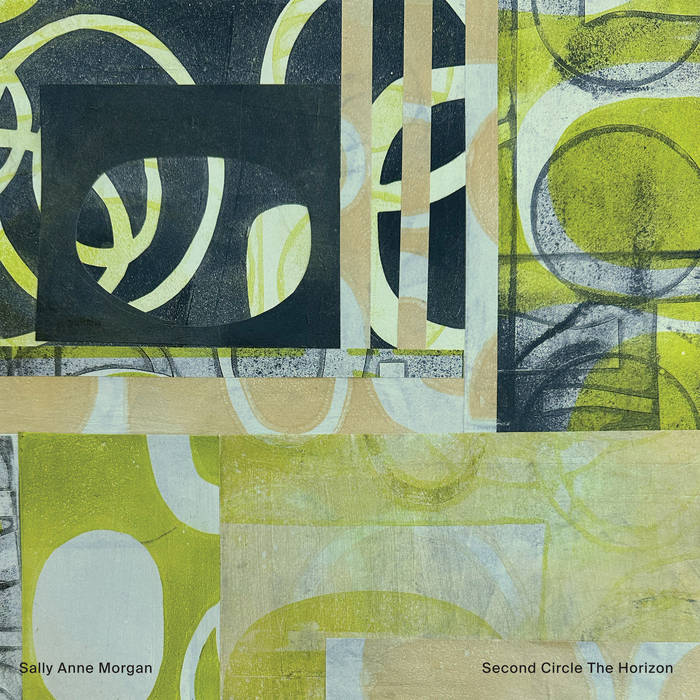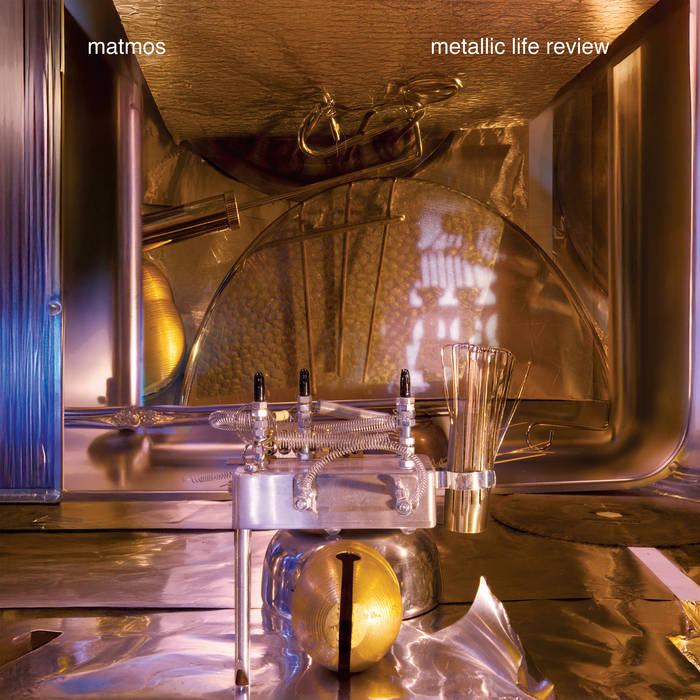
Daisy The Great "The Rubber Teeth Talk"
“The title of our third album, The Rubber Teeth Talk, comes from a lyric in one of the songs on the record, Dream Song, describing “the rubber teeth” covering the clock during a freaky, playful fever dream. Throughout the album, the Rubber Teeth symbolize the voices in our heads — sometimes tender and creative, other times critical and self-sabotaging. At its core, this album is about embracing the unknown, driven by both bold imagination and intimate personal reflection. We were so lucky to be able to work on this project with the inimitable Catherine Marks, star of our hearts and fearless co-leader of the project. Each song exists in its own distinct world, blending lyrically inspired sonic details with our stacks of interlocking harmonies. We recorded the album with our band at Studio G in Brooklyn and finished it up in London with Catherine at Eastcote. It has been a really really special time and we can’t wait for everyone to hear the music.” – From Rough Trade Vinyl

Sharpie Smile "The Staircase"
Sharpie Smile (Dylan Hadley & Cole Berliner of Kamikaze Palm Tree) break out with their debut full-length – a lush, energizing contemporary pop record, built on heart-swelling minimal/maximal electronic production + deep feels. Reality’s breaking and rebirth is happening, one day–and one song–at a time. Sharpie Smile ride inspired waves of futurist sound art on a dreamy, ethereal vision-quest through serpentine soul-terrain.

Sally Anne Morgan "Second Circle the Horizon"
Sally Anne Morgan is an artist and naturalist in the purest senses. Raised on old time and Appalachian folk traditions, Morgan’s artistry embodies the rich life of the communities and natural world she surrounds herself with. Based in Alexander, NC in the thick of Appalachia, and edge of the Pisgah National Forest, Morgan’s blend of traditional technique and distinctly modern compositional approach are infused with the sounds of her garden, surrounding pastures, forests and mountains. The rhythms of nature, its flora and fauna, are inseparable from her work which is in constant conversation with the people and places around her. Second Circle The Horizon is a meditation on returning, uncovering the new within the familiar and recognizing the familiar within the new.
Morgan’s compositions, on Second Circle The Horizon, are vivid, translating an ineffable feeling triggered by environmental sounds into music that feels as natural and free as the intersecting chirps of Carolina Wrens, the rustling of grass, and her sheep’s movement through a meadow. The album returns to the approach Morgan took with her more improvisational album Cups (2021), and threads in the preternatural songcraft of Carrying (2023). “I wanted to capture the feeling of walking outside and encountering organic nature sounds, some with patterns, some with a randomness that also verges on its own kind of pattern,” notes Morgan. Abstraction in pursuit of free exploration of that which can’t be put into words, balancing with an intentional structure of song lies at the album’s core. Morgan gave herself into the free instinctual pursuit of ideas, while her experience resulted in pieces that move organically in structured arcs. “I have played so many fiddle tunes, the fiddle tune, the structure, the melody, are at the root of all music I make, whether I want them to be or not,” Morgan continues. “Old time fiddle music is the seed that grew into the part of my brain that makes music, and everything I do somehow seems to come back to that. I think something gets lost when you’re too focused on honing and refining everything. Someone who is not focused on virtuosic playing, but more rustic simplicity and spaciousness, there is life and energy to it, electricity.”

Matmos "Metalic Life Review"
Matmos’ singular compositional approach resembles the creation of sculpture. The incredibly detailed pieces that make up each album are created with carefully selected sounds that adhere to a specific conceptual framework. The duo, composed of Drew Daniel and M.C. Schmidt, makes music that defies both category and expectation, shattering notions of what electronic music is by questioning what else it could be. In the case of Metallic Life Review, what may be possible with the sound that metal objects make? By ignoring the categorical genre constraints associated with terms like found sound, music concrète, techno, glitch and, yes, “metal” and pushing into new territory, Matmos’s approach answers this question with gleeful abandon. Underpinning their adventurous and inquisitive spirits is a sense of real feeling, never shying from the difficult and unsettling moments, but embracing the breadth of human experiences that live in communication with the constraints of each project.
Metallic Life Review continues to take a seemingly impossible premise like making an album only with select, often commonplace objects like sounds of plastic (Plastic Anniversary) or a washing machine (Ultimate Care II), this time by entirely sourcing its sound from the sound of metallic objects: bronze, copper, steel, aluminium, and various alloys. In this case, they have collected field recordings of metal objects from around the world, sourced from moments across the entirety of their years as a band. This life review documents their lives together, their curious collecting, and collages their magpie hoard into rhythmic patterns, sometimes writing melodies and basslines, but sometimes just letting sound be sound. Patient gathering yields to ADHD editing. Painstakingly made, but blink and you’ll miss the finer details. By employing the strong contrast between a harsh industrial clatter and a sweet melodic dimension, a deliberate counterforce, Matmos arrive at paradox: exceptionally beautiful music wrought from metal detritus.
Metallic Life Review features Susan Alcorn’s pedal steel and Owen Gardner’s glockenspiel, Thor Harris’ (Water Damage/Swans) drumming, Jason Willett’s (Half Japanese) guitar, and Jeff Carey’s aluminum cans, which were melted, molded into custom aluminum rods, and then bowed and struck. The most dramatic difference from any previous Matmos album is that side two was recorded “live in the studio”, ala Throbbing Gristle’s Heathen Earth. For the first time on recording, Matmos capture the evolving, shifting, slithering dynamic that happens when they play live and let patterns emerge out of chaos and then collapse and re-form. Their playful blend of compositional brilliance and improvisational playfulness meld perfectly, truly capturing ecstatic moments in a way that can only happen live.
Metallic Life Review is a musical love story transmuted into sound, the result of a life filled with curiosity and powered by boundless exploration. Matmos have again made something spellbinding, brilliant and emotionally resonant.